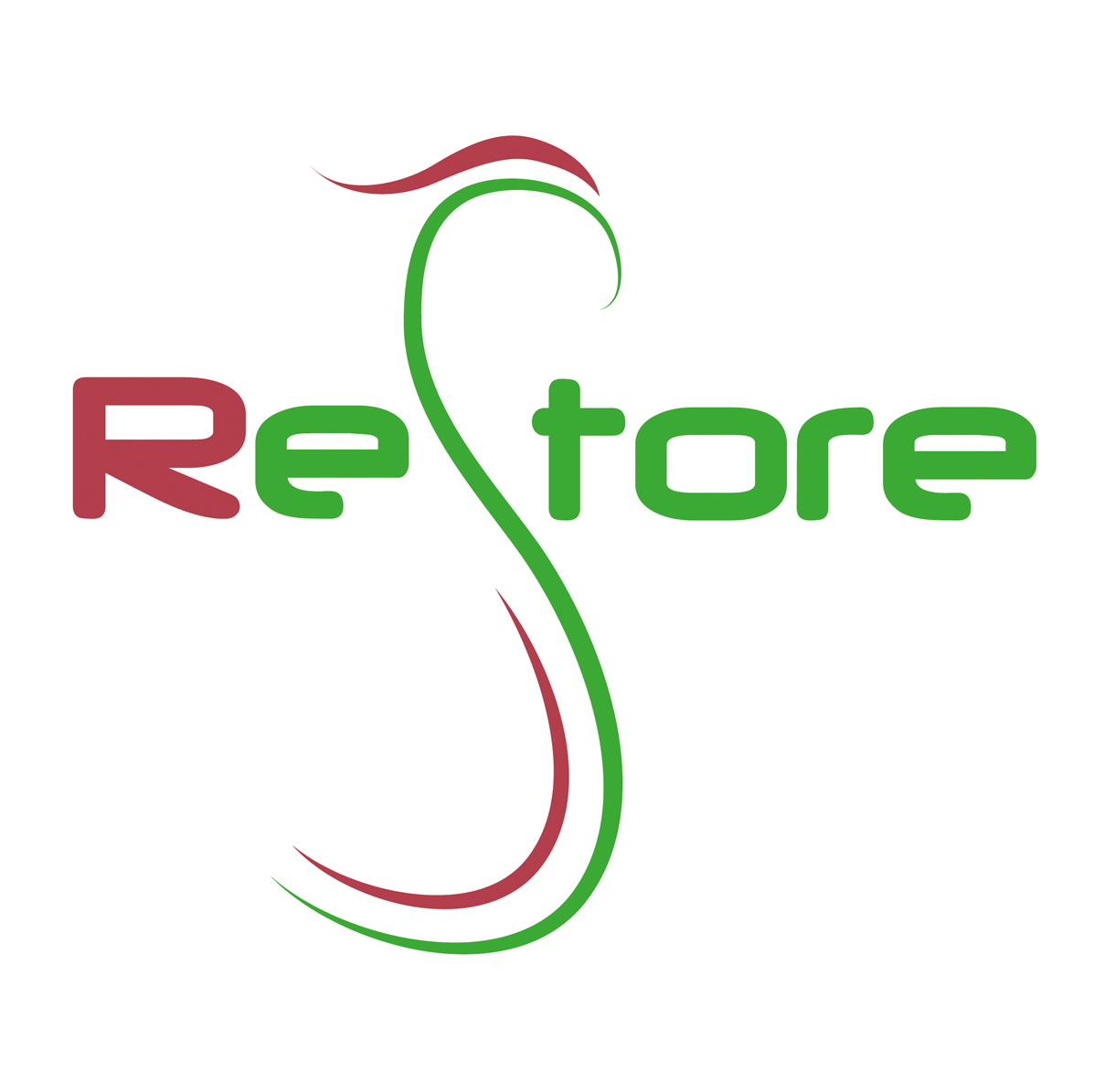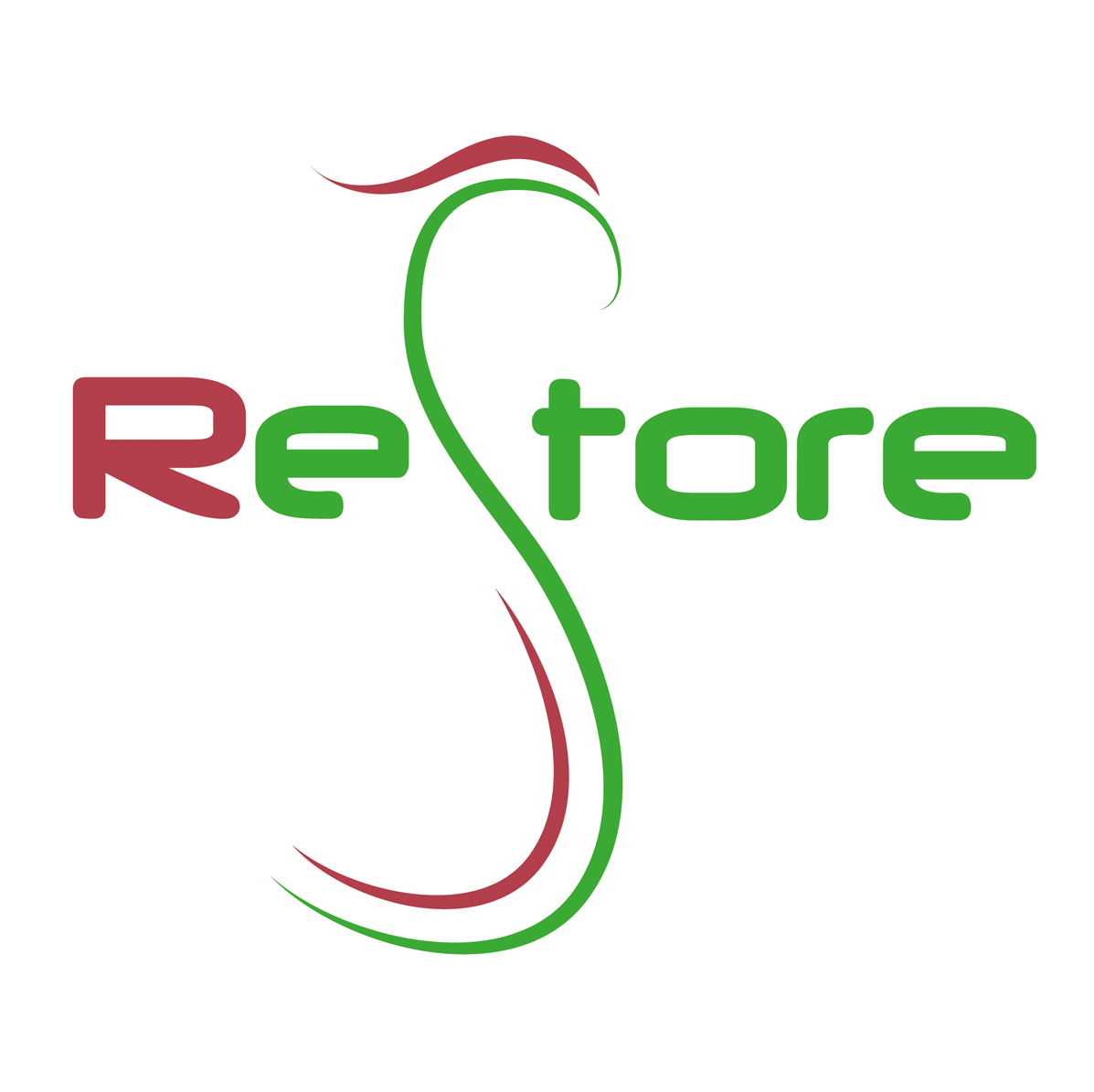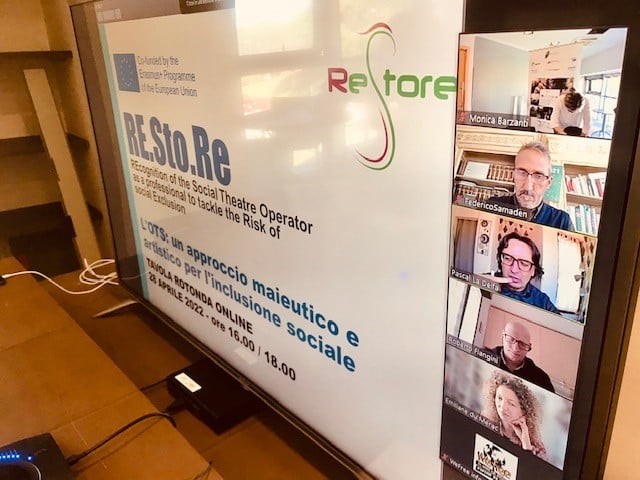ONLINE ROUND TABLE – PROJECT Re.Sto.Re – ITALY, 28 APRIL 2022.
PASSION AND MULTIDISCIPLINARITY PUT IN SYSTEM TO GENERATE SOCIAL IMPACT THROUGH SOCIAL THEATRE.
A rich round table, moderated and conducted by Monica Barzanti from San Patrignano, took place online on May 28 on the theme “STO: a maieutic and artistic approach for social inclusion”.
“The social theatre operator works with the fragility of people, of all people. It is an investment that will have a return” is the working perspective launched by the project leader Pascal La Delfa, which was widely taken up by Prof. Filippo Giordano, who highlighted how important it is to “measure the social impact” in order to validate the profession and “become actors of positive change”.
The creative flow generated by art in prison, but not only the reduction of recidivism, was spoken about, moved by the power of the testimony itself, by the Hon. Raffaele Bruno, who is working on a bill for the inclusion of rehabilitation theatre projects in prisons, while the psychologist Roberto Flangini, with a special delicacy, gave us a first-hand experience of how much theatre and clowining contribute to self-discovery in illness and treatment in paediatric oncology, promoting psychological resilience.
Emiliane Rubat Du Merac, an expert in pedagogy and related disciplines, enthusiastically shared her thoughts on “talent” and “skills”, which led to a training and assessment programme currently underway at La Sapienza University in Rome, the Open Badges.
The passionate contribution of Federico Samamen, who has been dedicated for years to what he calls “growing lives”, as well as to the management of scholastic and professional contexts, confirmed how over the years he has touched upon the “educational power” of theatre, in a generative welfare perspective.
Stefano Tè, director and artistic director of Teatro dei Venti, invited us to “reflect on ourselves, on how we have the skills to play an important role in this society” and on how “unconventional, less protected and safeguarded places” are interesting for him “where I have to tune in, listen, where I can affirm my vocation”.
Fulvia Gemmani, with dedication and competence, introduced us to the world of training and accredited bodies, highlighting what steps need to be taken for the recognition of professions.
Last but not least, Dr. Francesca Bergamini, the competent voice of the Emilia Romagna Region, on the strength of the testimonies collected and the impact generated in different areas, suggested that we try to imagine a “role played in a wider context”, thanks to the importance of the comparison between different worlds.
In order to continue the discussions, we agreed to meet on 29 October for the final event of the Re.Sto.Re Project, in San Patrignano.


